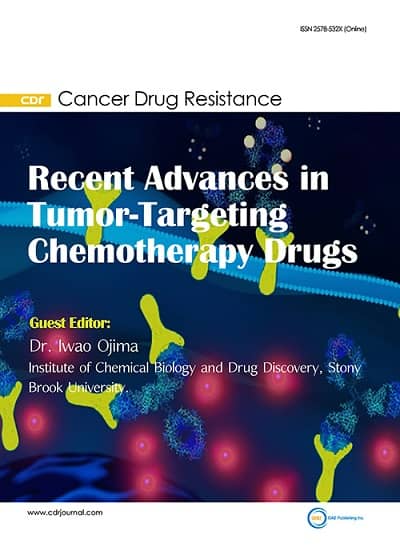
Topic: Recent advances in Tumor-Targeting Chemotherapy Drugs
Guest Editor(s)
Special Issue Introduction
Extensive investigations into efficacious tumor-targeting drug delivery systems (TTDDS) for cancer chemotherapy based on monoclonal antibody – drug conjugates (ADCs) in the last 2 decades have resulted in 4 FDA-approved ADCs, and a large number of ADCs are currently in clinical trials. Through the development of these first-generation ADCs, focused efforts have been made on the discovery of efficacious monoclonal antibodies (mAbs) specific to particular cancers, selection of extremely potent payloads (cytototoxic anticancer drugs), and invention of "smart" linkers. Recently, the second generation of ADCs is emerging in which a less cytotoxic payload with a higher loading on mAb and a "smarter" linker are used, exploiting the bystander effects. Cite-specific loading of payloads on mAbs is also advanced to produce structurally well-defined and homogeneous ADCs rather than undefined mixture used in the first-generation ADCs. Besides ADCs, small-molecule drug conjugates (SMDCs) have been extensively studied. Although no SMDCs have been FDA approved yet, at least one SMDC advanced to the Phase III clinical trials. Thus, this approach has a promise in the future. As the tumor-targeting module, mAb's Fab fractions, tumor-specific synthetic proteins by protein-engineering and DNA/RNA-based aptamers have been showing certain promise. "Smart" linker technologies have also be advancing through chemical biology research. The second-generation ADC approach has opened up possibilities for the use of much broader range of cytotoxic payloads. Therefore, it is a very good time to summarize the recent advances in the tumor-targeting chemotherapy drugs by collecting articles from leading researchers at the 20th anniversary of the first FDA-approval of ADC, Mylotarg, in 2000, and explore future prospects in this field of pharmaceutical research.
Submission Deadline
31 Jan 2021
Submission Information
For Author Instructions, please refer to https://www.oaepublish.com/cdr/author_instructions
For Online Submission, please login at https://oaemesas.com/login?JournalId=cdr&SpecialIssueId=497
Submission Deadline: 31 Jan 2021
Contacts: Lori Kang, Assistant Editor, lori@cdrjournal.com







